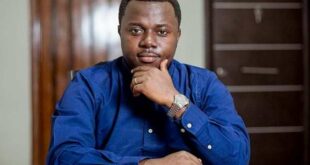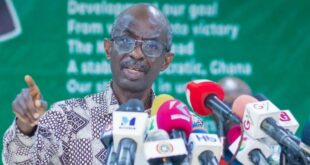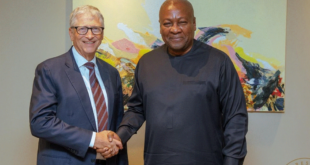
In a thought-provoking reflection, Professor Kwabena Frimpong-Boateng, a prominent figure within the New Patriotic Party (NPP), has raised significant concerns about the party’s recent actions and trajectory. The Professor’s words come in the wake of an unfortunate incident involving NPP-affiliated individuals attacking a media outlet, UTV, during a live program.
The attack on UTV, seemingly motivated by the content of the program, has left many party members and observers bewildered. Professor Frimpong-Boateng, in his analysis, asks a poignant question: “NPP, HOW DID WE GET HERE?”
He recalls the days when the NPP, under President Kufuor, championed the ideals of the rule of law, freedom of the press, and respect for human rights. These principles once defined the party’s identity and appeal. The Professor expresses his dismay that a party with a rich tradition of respecting diverse opinions and the rule of law would resort to violence against a media house.
The recent incidents, including attacks on government officials and a court in Kumasi, have led many to question whether the party’s leaders have lost control or tacitly condone such behavior. These actions, as Professor Frimpong-Boateng points out, are eroding the party’s moral authority.
Moreover, the Professor expresses concern about the economic challenges facing Ghana. He highlights predictions by credible economists that suggest a long road to economic recovery. Rather than addressing these issues, the government appears passive, leaving many Ghanaians anxious about the future.
Professor Frimpong-Boateng also laments the evolving nature of the NPP, noting that some party leaders do not align with its original principles. He emphasizes the importance of upholding the rule of law, respecting individual rights, and preventing the concentration of power.
In a sharp critique, the Professor remarks on the changing financial dynamics within the party, from seeking donations through a Mobile Money account to the apparent extravagance in recent times. This shift raises questions about the party’s commitment to its anti-corruption stance.
Furthermore, he raises concerns about individuals outside formal roles in the party who wield considerable influence, a departure from the NPP’s historical identity.
 GhArticles.com Every News in Detail
GhArticles.com Every News in Detail



